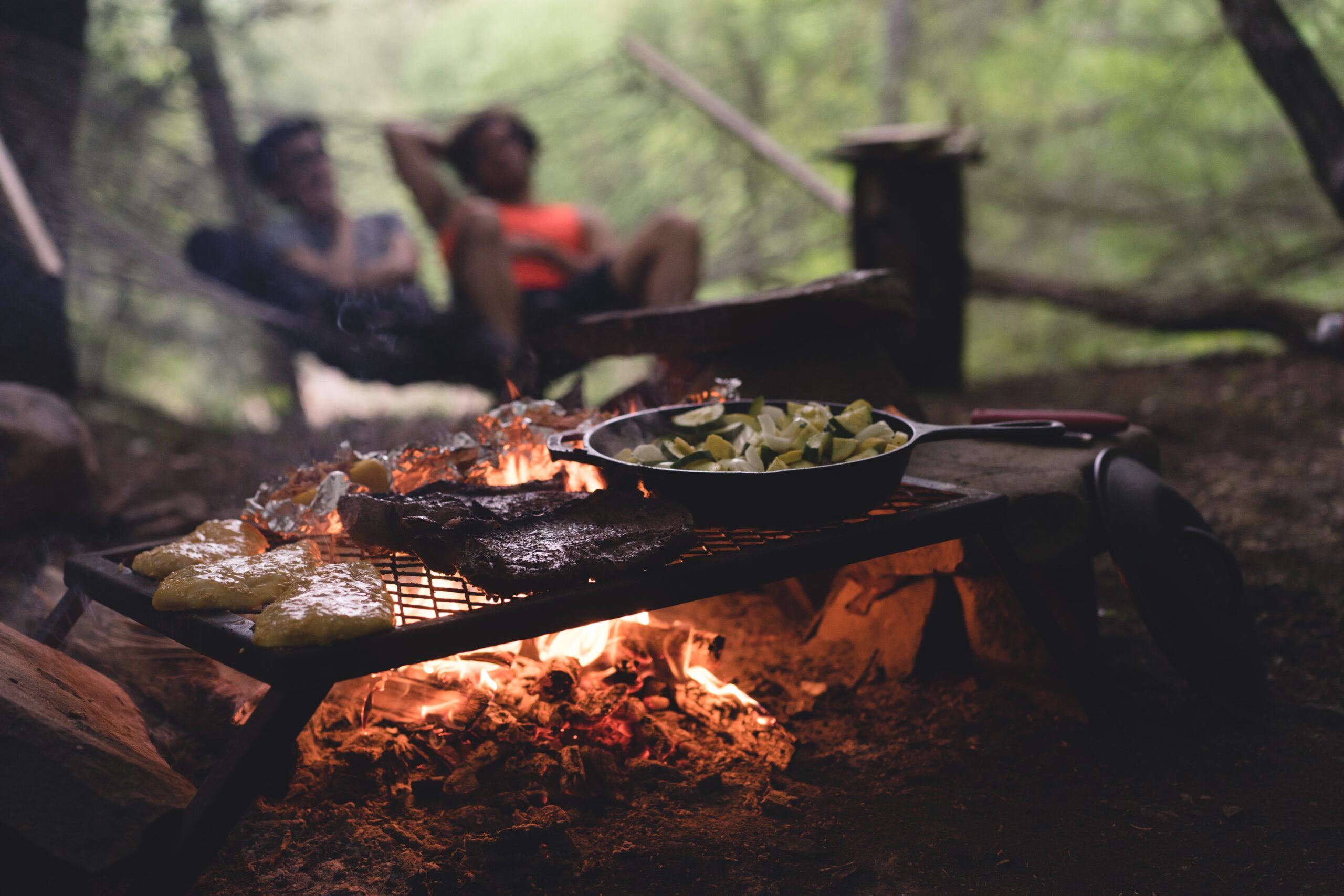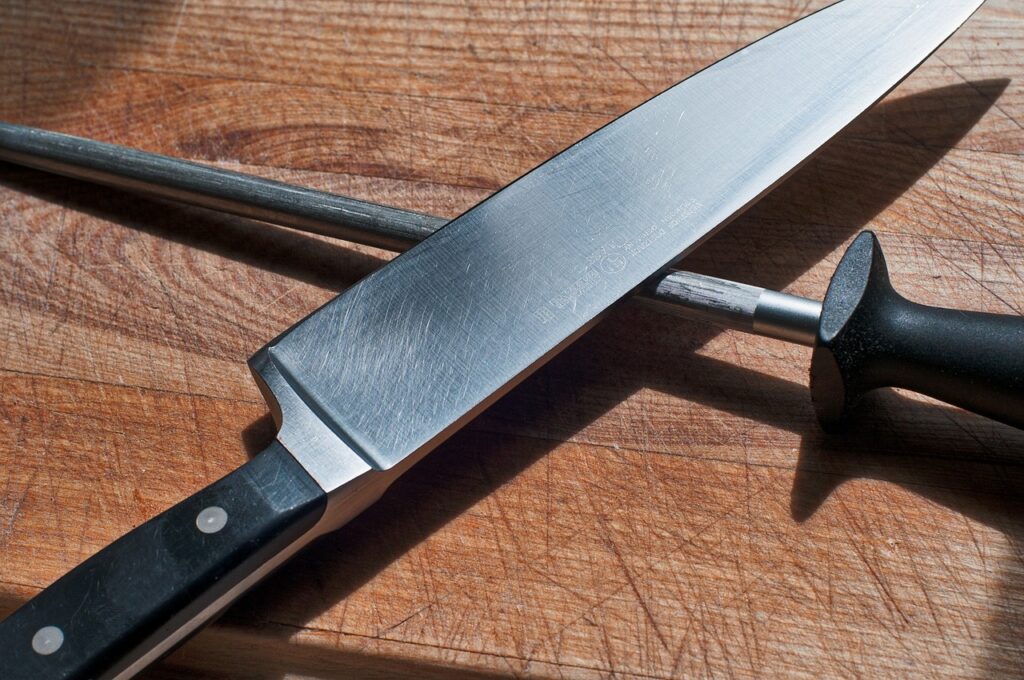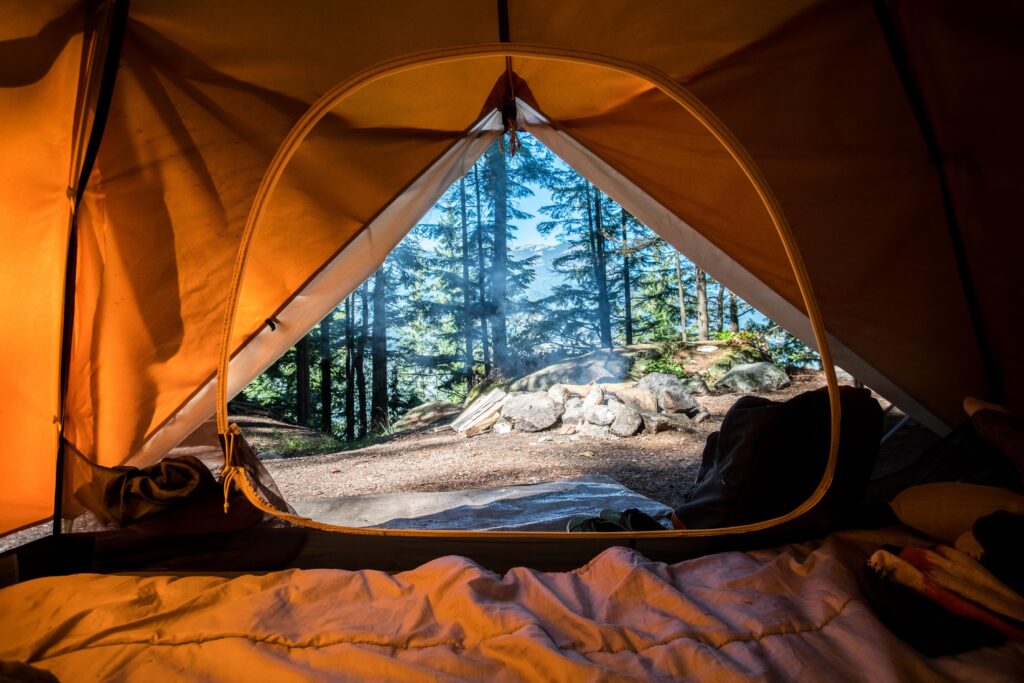
Imagine being able to cook delicious and satisfying meals while enjoying the great outdoors. With “Cooking Tips for Camping,” you’ll be equipped with all the advice and guidance you need to elevate your camping culinary skills. From tips on food storage, meal planning, and essential cooking equipment, this handy guide will help you create unforgettable meals over open fires or portable stoves. Whether you’re a seasoned camper or a first-time explorer, “Cooking Tips for Camping” is your go-to resource for making your camping experience even more enjoyable and delicious.
Cooking Tips For Camping
Camping is a great way to enjoy the great outdoors and unwind from the stresses of daily life. And what better way to enhance your camping experience than by cooking delicious meals over an open fire or portable grill? With a little planning and preparation, you can enjoy tasty and satisfying meals while exploring the beauty of nature. Here are some cooking tips for camping that will help you make the most of your outdoor cooking adventures:
1. Plan and Prepare Ahead
When it comes to camping, planning and preparation are key. By putting in a little extra effort before your trip, you can ensure that your meals go smoothly and that you have everything you need. Here are some tips to help you plan and prepare ahead for your camping meals:
- Plan Meals in Advance: Before your camping trip, take some time to plan your meals. Think about the types of meals you want to cook and ensure that you have all the necessary ingredients. Planning ahead will help you avoid last-minute trips to the grocery store and ensure that you have a variety of meals to enjoy.
- Consider Dietary Restrictions: If you or anyone in your camping group has dietary restrictions or food allergies, it’s important to take those into consideration when planning your meals. Make sure to choose recipes that cater to everyone’s needs and preferences.
- Make a Detailed Grocery List: Once you have your meals planned out, make a detailed grocery list of all the ingredients you’ll need. This will help you stay organized and ensure that you don’t forget anything essential.
- Pre-Cut and Pre-Measure Ingredients: To save time and minimize mess at the campsite, consider pre-cutting and pre-measuring ingredients before your trip. This will make cooking much easier and more efficient.
- Consider Meal Prep at Home: If you have the time, consider doing some meal prep at home before your camping trip. This could include marinating meats, chopping vegetables, or pre-cooking certain components of your meals. This will simplify the cooking process at the campsite and allow you to spend more time enjoying nature.
- Select Recipes That Can Be Adapted to Campfire Cooking: Not all recipes are suitable for campfire cooking, so be sure to choose recipes that can easily be adapted to cooking over an open fire or on a portable grill. Look for recipes that require minimal equipment and can be cooked using simple cooking techniques.
- Check Cooking Restrictions or Fire Bans at the Campsite: It’s important to check if there are any cooking restrictions or fire bans at the campsite you’ll be staying at. Some campsites may have specific rules regarding open fires or portable grills, so make sure to familiarize yourself with the rules and regulations before you go.
- Pack Extra Fuel or Charcoal: It’s always a good idea to pack extra fuel or charcoal for cooking. This will ensure that you have enough fuel to cook all your meals, even if your camping trip lasts longer than anticipated or if you encounter unexpected weather conditions.
2. Choose the Right Cooking Equipment
Having the right cooking equipment can make a world of difference when it comes to outdoor cooking. Here are some tips to help you choose the right cooking equipment for your camping adventures:
- Consider Camp Stoves or Portable Grills: While cooking over an open fire can be a fun and traditional camping experience, it’s always a good idea to have a backup option. Consider bringing a camp stove or portable grill that can be used in case of bad weather or fire restrictions.
- Choose Lightweight and Easy-to-Clean Pots and Pans: When it comes to pots and pans, choose lightweight options that are easy to carry and clean. Look for pots and pans made from materials like aluminum or stainless steel, as they are durable and heat up quickly.
- Invest in a Good Quality Cooler: A good quality cooler is essential for keeping your perishable food fresh and safe to eat. Look for a cooler that is well-insulated and has the capacity to hold all your food and drinks. Consider investing in a cooler with separate compartments for ice and food to avoid cross-contamination.
- Pack a Portable BBQ: If you enjoy grilling, consider packing a portable BBQ. Portable BBQs are compact, easy to use, and can be set up anywhere. They are a great option for cooking meats, vegetables, and even pizza!
- Bring a Cast Iron Skillet or Dutch Oven: Cast iron skillets and Dutch ovens are versatile cooking tools that are perfect for camping. They retain heat well and can be used for cooking a wide variety of dishes, from stews and soups to pancakes and burgers.
- Don’t Forget Utensils and Cutlery: When packing your cooking equipment, don’t forget to bring utensils and cutlery. Pack a set of tongs, a spatula, a wooden spoon, and a knife. Opt for lightweight and durable options that won’t take up too much space in your camping gear.

3. Pack Essential Kitchen Tools
Having the right kitchen tools can make your camping cooking experience much easier. Here are some essential kitchen tools that you should pack for your camping trip:
- Pack a Cutting Board and Knife: A cutting board and a sharp knife are essential for food preparation. Choose a lightweight and compact cutting board that can be easily cleaned. When it comes to knives, opt for a versatile and durable knife that can handle a variety of cutting tasks.
- Bring a Can Opener and Bottle Opener: A can opener and bottle opener are must-have tools for opening canned foods, beverages, and condiments. Make sure to pack a sturdy and easy-to-use can opener and a bottle opener that can fit in your pocket.
- Include Measuring Cups and Spoons: Measuring cups and spoons are necessary for accurately measuring ingredients. Plastic or collapsible measuring cups and spoons are lightweight and easy to pack.
- Don’t Forget Tongs and a Spatula: Tongs and a spatula are essential for flipping and turning foods on the grill or campfire. Look for long-handled tongs and a heat-resistant spatula that can withstand high temperatures.
- Pack Aluminum Foil and Ziploc Bags: Aluminum foil is a versatile tool that can be used for wrapping foods, creating makeshift cooking surfaces, and even cleaning grills. Ziploc bags are great for storing leftovers and keeping ingredients fresh.
- Bring Matches or Lighter: Don’t forget to pack matches or a lighter to start your campfire. Make sure to keep them in a waterproof container to keep them dry.
4. Organize and Store Ingredients Properly
Organizing and storing your ingredients properly is essential to ensure food safety and freshness during your camping trip. Here are some tips for organizing and storing your ingredients:
- Use Sealable Containers for Fresh Ingredients: Instead of bringing original packaging for perishable items like meat, vegetables, and fruits, transfer them to sealable containers. This will help keep them fresh and prevent cross-contamination.
- Separate Raw and Cooked Foods: When packing your cooler, be sure to separate raw and cooked foods. Raw meat and poultry should be stored separately from cooked foods to avoid cross-contamination.
- Store Perishable Foods in a Cooler with Ice Packs: To keep perishable foods fresh, store them in a cooler with ice packs. Make sure the cooler is well-insulated and the ice packs are replaced regularly to maintain a safe temperature.
- Label and Date Items in the Cooler: Labeling and dating items in the cooler can help you keep track of their freshness and ensure that nothing gets forgotten or wasted.
- Keep Food Away from Animals and Insects: When camping, it’s important to store your food securely to prevent animals and insects from getting to it. Hang food from a tree branch or store it in a locked vehicle if possible. Additionally, consider using bear-proof storage containers in bear country.
- Use Dry Storage Containers for Non-Perishable Items: Non-perishable items like pasta, rice, spices, and canned goods can be stored in dry storage containers to keep them organized and protected from moisture and pests.

5. Consider Easy and One-Pot Meals
Cooking while camping should be enjoyable and stress-free. That’s why opting for easy and one-pot meals can make a big difference. Here are some ideas for easy and delicious camping meals:
- Opt for Foil Packet Meals: Foil packet meals are incredibly versatile and easy to make. Simply wrap ingredients like meat, vegetables, and seasonings in aluminum foil, and place them over the campfire or on the grill. You can customize these packets with your favorite ingredients and seasonings.
- Try Campfire Skillets or Stir-Fries: Campfire skillets or stir-fries are another great option for quick and satisfying meals. All you need is a sturdy skillet or pan, some oil, and your choice of protein and vegetables. Cook everything together over the campfire, and you’ll have a delicious and hearty meal in no time.
- Make One-Pot Pasta or Rice Dishes: One-pot pasta or rice dishes are simple and require minimal cleanup. Choose your favorite pasta or rice dish and cook it all in a single pot. You can add vegetables, meat, and seasonings to make it even more flavorful.
- Experiment with Campfire Sandwiches or Wraps: Campfire sandwiches or wraps are a convenient and delicious option for lunch or dinner. Fill tortillas or bread with your favorite deli meats, cheeses, and vegetables, and heat them up over the campfire or on a portable grill.
- Grill Kabobs or Skewers for Quick and Easy Meals: Kabobs or skewers are a fun and easy way to cook meats and vegetables on the campfire. Simply thread your choice of ingredients onto skewers and grill them over the fire until cooked to perfection.
- Don’t Forget to Bring Some Instant Meals or Soup Packs: For those times when you want a quick and easy meal, instant meals or soup packs can be a lifesaver. They require minimal preparation and can be enjoyed within minutes.
6. Bring Plenty of Non-Perishable Foods
Stocking up on non-perishable foods is essential for any camping trip. These foods are durable, lightweight, and require no refrigeration. Here are some non-perishable foods to consider packing for your camping adventure:
- Stock Up on Canned Foods: Canned foods like beans, soups, and tuna are nutritious and convenient options for camping. They have a long shelf life and can be easily added to many different recipes.
- Pack Dried Fruits and Nuts: Dried fruits and nuts are great sources of energy and can be enjoyed as snacks or added to oatmeal, trail mixes, or baked goods. They are lightweight and don’t take up much space in your camping gear.
- Include Energy Bars and Trail Mix: Energy bars and trail mix are perfect for hiking and other outdoor activities. They provide a quick and easy source of energy and can be enjoyed on the go.
- Bring Instant Oatmeal or Cereal: Instant oatmeal or cereal packets are ideal for a quick and filling breakfast. Just add hot water, and you’ll have a delicious and nutritious meal in no time.
- Don’t Forget about Peanut Butter and Crackers: Peanut butter is a versatile and protein-packed food that can be spread on crackers, bread, or used as a dip for fruits and vegetables. It’s a great source of energy and can be enjoyed as a snack or incorporated into meals.
- Have Some Chocolate or Sweets for Treats: Treat yourself to some chocolate or other sweet treats while camping. They can be enjoyed as a dessert or as a pick-me-up during the day.

7. Use Lightweight and Compact Ingredients
When it comes to camping, convenience and portability are key. Choosing lightweight and compact ingredients will help you save space and make your camping experience more enjoyable. Here are some tips for using lightweight and compact ingredients:
- Choose Dehydrated or Freeze-Dried Foods: Dehydrated or freeze-dried foods are perfect for camping because they are lightweight, compact, and have a long shelf life. Look for dehydrated or freeze-dried meats, fruits, and vegetables that can be rehydrated easily.
- Opt for Lightweight Vegetables and Fruits: When selecting fresh vegetables and fruits, opt for lightweight options that are easy to pack, like cherry tomatoes, bell peppers, oranges, and apples.
- Bring Powdered Milk or Condiments: Powdered milk is a convenient option for adding to your morning coffee or cereal without needing refrigeration. Additionally, bring powdered condiments like salt, pepper, and spices to add flavor to your meals without taking up much space.
- Consider Instant Coffee or Tea Bags: If you’re a coffee or tea lover, consider bringing instant coffee or tea bags for a quick and easy cup of your favorite beverage. They are lightweight and take up minimal space in your camping gear.
- Pack Tortillas Instead of Bread: Tortillas are a versatile and compact alternative to bread. They can be used for sandwiches, wraps, or even as a base for pizzas. They are less likely to get crushed during your camping trip.
- Bring Concentrated Soup or Sauce Mixes: Concentrated soup or sauce mixes are great for adding flavor to your meals without taking up much space. They can be easily rehydrated and used as a base for soups, stews, or pasta dishes.
8. Mastering the Campfire Cooking Techniques
Cooking over a campfire is a unique and rewarding experience. However, it requires some skill and understanding of campfire cooking techniques. Here are some tips to help you master the art of campfire cooking:
- Build the Right Campfire: Building the right campfire is crucial for cooking success. Start by choosing a safe and designated cooking area. Build a small fire using dry kindling and tinder, gradually adding larger pieces of wood. Allow the fire to burn down to a bed of hot coals before starting to cook.
- Learn How to Control the Heat: Controlling the heat of your campfire is essential for successful cooking. Adjust the intensity of the fire by adding or removing wood. If you need to lower the heat, spread out the coals or move the cooking vessel to the side of the fire.
- Understand the Different Cooking Zones: When cooking over a campfire, it’s important to understand the different heat zones. The center of the fire has the highest heat, while the outer edges have less heat. This allows for different cooking methods and adjusting the heat as needed.
- Use Foil and Grates to Cook Over Campfire: Foil and grates can be used to cook directly over the campfire. Foil can be used for wrapping food, creating makeshift pots, or even as a cooking surface. Grates can be placed over the fire to cook meats, vegetables, or even toast bread.
- Try Dutch Oven or Cast Iron Cooking: Dutch ovens and cast iron skillets are excellent tools for campfire cooking. They distribute heat evenly and can be used for a wide range of dishes, from stews and soups to baked goods and desserts.
- Practice Cooking with Charcoal Briquettes: Cooking with charcoal briquettes can be a reliable and consistent way to cook over a campfire. Briquettes can be arranged under and on top of the cooking vessel to provide even heat distribution.
10. Clean Up and Leave No Trace
Keeping the campsite clean and leaving no trace is not only important for the environment but also for future campers. Here are some tips for cleaning up after cooking and leaving no trace:
- Clear the Cooking Area of Debris: Before you leave the campsite, make sure to clear the cooking area of any food debris, packaging, or trash. Use a brush or broom to sweep away any food scraps or ash.
- Dispose of Food Scraps Properly: Food scraps should be disposed of properly to prevent attracting animals and insects. Bury them in a hole at least 200 feet away from camp or pack them out if necessary.
- Pack Out All Trash and Leftovers: Leaving trash or leftovers behind is not only unsightly but can also be harmful to the environment. Pack out all trash, including food packaging, to ensure the campsite remains clean and pristine.
- Clean Cooking Equipment Thoroughly: After cooking, take the time to clean and sanitize all cooking equipment thoroughly. This will help prevent the growth of bacteria and ensure that your equipment is ready for your next camping adventure.
- Extinguish the Campfire Completely: Before you leave the campsite, make sure to extinguish the campfire completely. Pour water over the fire and stir the ashes with a stick to ensure that no embers are left burning. Only leave the campfire area once it is cool to the touch.
- Leave the Campsite Better Than You Found It: As a responsible camper, strive to leave the campsite better than you found it. Pick up any trash or litter left behind by previous campers and leave the natural environment as undisturbed as possible.
By following these cooking tips for camping, you’ll be well-prepared to enjoy delicious meals while exploring the great outdoors. Remember to plan and prepare ahead, choose the right cooking equipment, pack essential kitchen tools, organize and store ingredients properly, consider easy and one-pot meals, bring plenty of non-perishable foods, use lightweight and compact ingredients, master the campfire cooking techniques, practice safety, and clean up after yourself. With these tips in mind, you’ll be able to create memorable camping meals that will satisfy your taste buds and fuel your adventures. Happy camping and happy cooking!
